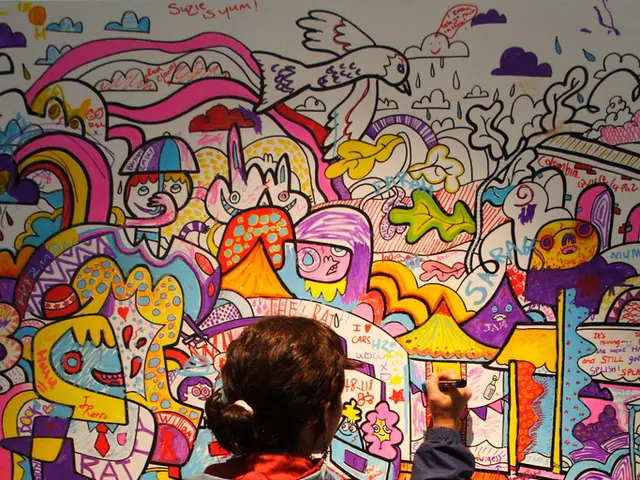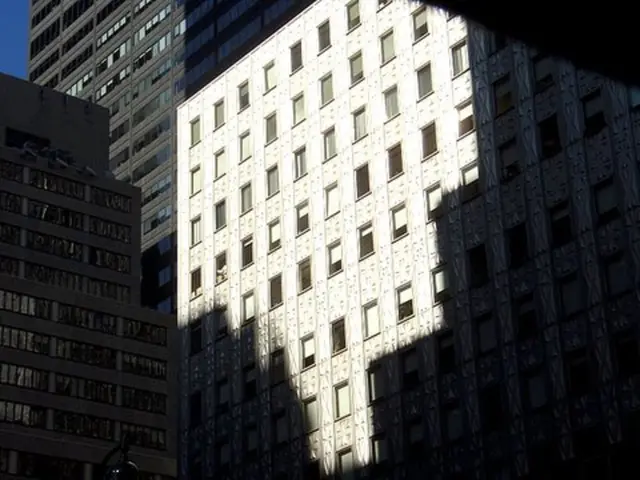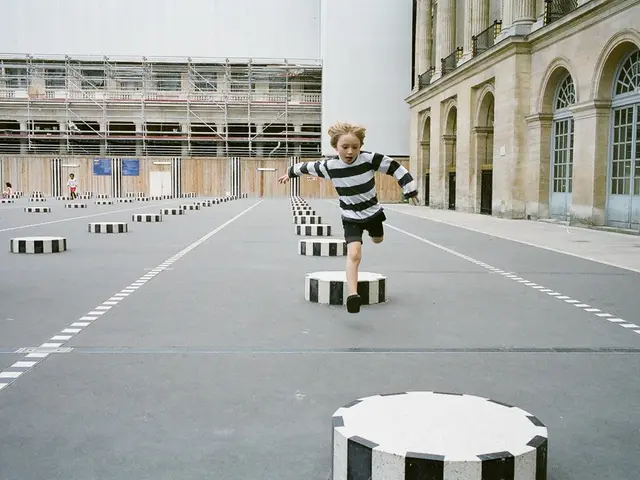Trashing the Freshwater: A River's Unfortunate Transformation into a Dumping Ground
Polluted Waterway: Is Dumping Garbage into Your Drinking Source Acceptable?
Growing up in Nigeria, I lived next to a river that was once a life-giving source. Sadly, it's become a dumping ground for garbage - and it's a grim lesson in what happens when we don't take care of our environment.
The logic was simple: when it rained, the flood would wash it all away. But where did "away" really mean? The truth is waste doesn't just disappear; instead, it redistributes, choking the river until it wasn't a river anymore. Instead, it was a grim disguise of water, masquerading as a landfill. And then came the storms.
In Nigeria, rainfall isn't a gentle drizzle; it's an unforgiving downpour. I remember a storm so fierce that it tore the roofs off seven houses and stacked them onto an eighth. Floods swept through the streets, carrying waste, bacteria, and destruction with them. Homes were lost, families were displaced. Yet, amazingly, the dumping didn't stop. The United Nations Environment Programme (UNEP) estimates that 80% of Ocean plastic pollution originates from land-based sources, on land and in rivers like mine, poisoning marine life and ecosystems far beyond what we can see.
Marine animals mistake plastic for food, leading to starvation or poisoning. Microplastics enter the food chain, affecting human health. Fisheries and coastal economies suffer, impacting lives worldwide.
But every small action counts. Cleaning one gutter. Removing one plastic bottle. Stopping one person from littering - that's how change begins.
Fighting back on Thursdays, my grandfather and I, armed with gloves, bags, and determination, waded through the muck, pulling out waste that shouldn't have been there in the first place. It's been exhausting, endless work. But then, something changed. People noticed. A few stopped dumping their trash. Some even joined us.
Now, I realize that our local efforts raise the collective consciousness, and while one river may not fix the Ocean, it's a start. And often, that's all we need.
Here are some ways you can make a difference too:
- Say no to single-use plastics.
- Keep your trash until you find a bin.
- Join or organize a local cleanup event.
- Share knowledge about the impact of pollution on the environment.
- Advocate for stronger waste management and plastic reduction policies.
Without a doubt, every small action counts. Take care of the environment, and it'll take care of you. It's a lesson I learned from the river behind my grandparents' house, and it's a powerful reminder that our actions have far-reaching consequences. It's not too late to make a difference. What small action will you take today?
- The transformation of the river into a dumping ground serves as a grim reminder of theEffects of neglecting our environmental-science and the importance of proper waste management.
- The Ocean's marine life and ecosystems are under threat due to the vast amounts of plastic pollution originating from land-based sources, including rivers and home-and-garden waste.
- Marine life, such as fish, mistake plastic debris for food, leading to fatal consequences like starvation or poisoning, disrupting coastal economies and the lives of people worldwide.
- Microplastics, tiny fragments of plastic, enter the food chain, potentially affecting human health and shifting the balance of the ecosystem.
- By adopting a sustainable-living lifestyle, individuals can reduce their contribution to plastic pollution, through practices like saying no to single-use plastics, keeping their waste until they find a bin, and joining or organizing local cleanup events.
- Sharing knowledge about the impact of pollution on the environment, particularly with children, is essential for fostering environmental-awareness and personal-growth in the next generation.
- Advocacy for stronger waste management and plastic reduction policies is crucial to combat the climate-change-related issues and ensure a cleaner, safer, and healthier environment for future generations.
- Every small action counts - It's important to understand that our individual actions have far-reaching consequences, and by taking steps towards sustainable living, we not only contribute to the preservation of our immediate environment, but also play a role in the global fight against pollution and climate-change.








